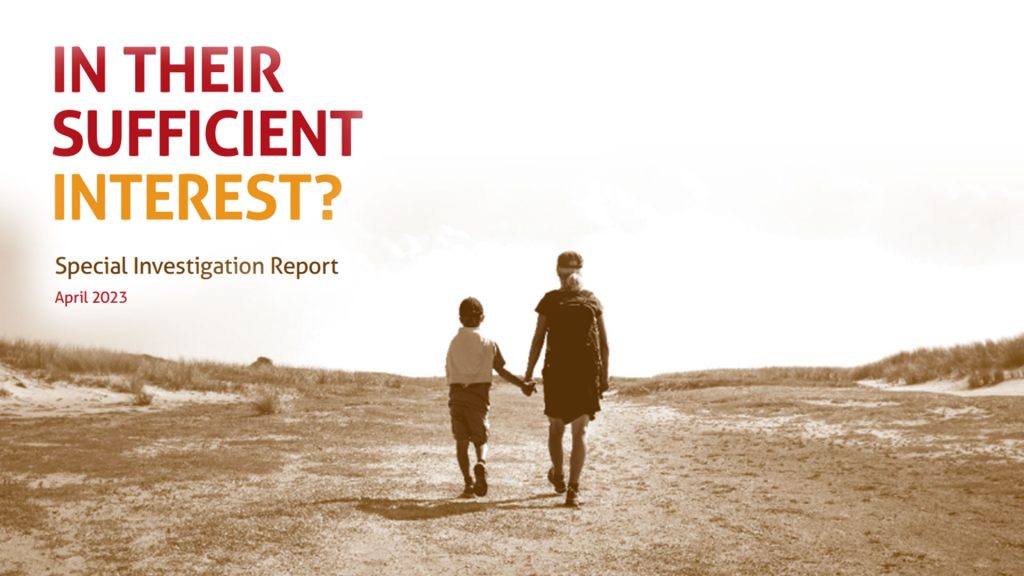
According to a report from Saskatchewan’s child advocate, a lack of guidelines for a government youth-in-care program can “escalate into family crisis, risk of abuse or placement disruption.”
The Ministry of Social Services runs the program, called “Person of Sufficient Interest”, or PSI.
The investigation was conducted “after years of observing children in PSI care struggling due to unmet needs and, at times, experiencing significant maltreatment,” said Lisa Broda, Saskatchewan Advocate for Children and Youth.
The program provides long-term care for children who are not able to live with their biological parent.
“Eighty per cent of children in the PSI care stream are Indigenous,” Broda told APTN News.
When a child is considered a PSI, they are placed with extended family or another person they share a connection with. It’s called kinship care.
Most court orders place the child with the new guardian until they are 18 years old.
PSI guardians receive the same payments as foster parents, but the government only checks in with them once a year, Broda said, adding that the child doesn’t have to be there during the check.
The review found that the ministry doesn’t assess PSI guardians with the same rigour as an adoptive guardian or foster parent.
The report said that, “[q]uality of care concerns about a PSI guardian that do not meet the threshold for a child abuse investigation may go unaddressed.”
Indigenous children make up between 70-80 per cent of the children in care despite only making up 17 per cent of the population in Saskatchewan, according to 2021 census data.
“Indigenous children have suffered, we know this because they are over represented in our child welfare system and justice system.
“Intergenerational trauma needs to be acknowledged for these children and families and we have to provide the best support possible for them,” said the child advocate.
The report made eight recommendations for the ministry to consider improving the PSI program, including:
That the ministry take steps to train staff in assessing extended family caregivers including understanding intergenerational trauma.
That the ministry makes sure potential PSI guardians understand their responsibilities.
That the ministry amend the legislation to “provide an extension of services to children in PSI care to age 21”.
The ministry accepted all but one recommendation from the report, rejecting the request to increase its services to PSI children from 18 years old to 21, to align with the ministry’s Alternative and Foster Care programs.
“Not accepting this recommendation serves to perpetuate a discriminatory condition for those children and youth who are in the PSI program,” reads the report.
Broda said that rejecting the eighth recommendation is unjust for the child and family.
“It is really unjust for families who are opening their homes to care for these children who won’t get support beyond their 18th birthday and we all know youth in transition struggle and are vulnerable.”









